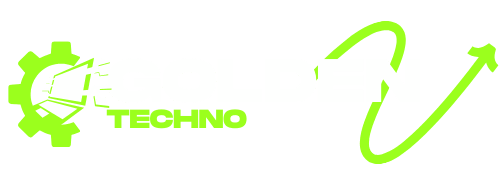In the present, educators and leaders in education are entrusted with the task of not only educating their students and fostering knowledge and abilities within their minds,s, but also preparing them for the challenges that await them in the world of reality. It’s crucial, since this isn’t the environment their parents used to live in, and everything around them undergoes continuous and rapid shifts. It is a fact that simply having kids be aware of something isn’t enough. They have to be able to think independently and look at things with an open mind, and that’s where the deeper learning component comes in.
Top Strategies For Deeper Learning Skills
The term “deeper learning” refers to a process that covers all the knowledge techniques, skills, and ways of thinking that students must learn to be well-prepared and eventually succeed in the treacherous waters of their personal and professional lives.
Alongside applying the knowledge they’ve acquired and applying it to their lives, they need to conquer obstacles like Education complicated intercultural and multicultural relationships that are prevalent in our world today and global economic issues that affect all. That’s why the job of educators is now more crucial than ever. Helping them develop their abilities is essential, and that is why you’ll discover the top 10 most effective strategies listed below.
Keep your focus on the heart.
Teaching and Education leadership require an entirely separate chapter or even a separate discipline; however, what educators can learn from this chapter is how important it is to master the fundamental processes, language, and processes that can be later applied within the actual world to address issues and offer critical analysis at the local scale. Tools that can be utilized for this include not only classes and reading, but also reading and active participation in classes, as well as reflection following each lesson.
Develop critical thinking.
As Education leaders of the future and decision-makers, students must be prepared to face the demands and obstacles that are bound to arrive at them. Learning the art of critical thinking in conjunction with the tried and tested methods and tools used to tackle complex issues is essential , as it can assist them in determining the cause of every issue and the components that make it up it and determine the most effective way they’ll need to follow to resolve them.
Introduce more science.
Science should be utilized more as it accurately reflects the problems students are likely to encounter in their professional lives. This is particularly true when students are pursuing the degree they will need within one of the STEM disciplines. While standardized tests are important, teachers should entice students to participate in science fairs. Educators must encourage them to participate by introducing standards that confirm this method and allow it to be measured.
Teamwork in practice.
Educational leaders must be able to collaborate on multiple levels. This involves not just creating a strong team that they can count on and exchange ideas with teachers, but also with students, since they’re an integral element of the whole. While certain skills associated with working in a team can be learned informally, like the various methods of resolving conflicts and sharing knowledge, applying them in practice is a different matter.
Develop the ability to talk.
The development of communication skills is crucial for leaders of all types since it facilitates effective conflict resolution and a constructive dialogue that allows ideas to flow freely between sides. Educational leaders must bear the mind that communication happens in both directions. It’s not just about addressing others, but also about listening to and getting useful feedback and then forming a discussion that contains criticisms, arguments, and ideas.
Increase the reach.
With the help of new technologies and tools that are adaptive tools, educators can expand their influence far beyond what they could accomplish previously. By focusing on teaching students the basics of learning and abilities, this technology will gradually prepare them for more advanced learning, and help teachers concentrate their efforts on more advanced learning. Things like learning profiles that are thorough can help in making it easier to personalize learning.
Learn and grow.
Accepting learning as a process is a crucial step in taking on new knowledge and skills, along with the challenges to your intellectual development associated with it. A crucial element of the process of learning is establishing goals, reflecting on, and accepting your reality that you might not be able to know everything all the time, and embracing criticism and using the feedback to be better, and many other things.
Develop the leadership qualities.
Digital learning also benefits educators in the same way that it benefits students. Education Leaders can use learning apps, digital courses, as well as academic and learning networks to improve and improve their Education leadership. These tools offer an abundance of customization and flexibility. This is fantastic, as leaders can get right into the details.
Use deep blended models.
While digital learning certainly improved the quality of blended learning, there is an obvious distinction between two distinct ways of Education learning: that is, the standard test of multiple options, and more advanced learning that guides students to establish a link between their work and learning through the project-based learning process, and promotes their learning in the presence of a wider community.
Connect and congregate.
Not least, it is essential to keep in touch and connect with the education leaders of different districts and schools that promote greater learning. With the Internet,t it’s e matter of arranging the simplest conference call and discussing ideas and receiving honest and helpful feedback.
Learning that is deeper is the way to go since the existing learning systems aren’t able to meet the needs that the world of tomorrow will present to our children. This is why it’s the responsibility of educators and teachers to prepare students for the world of work by introducing and implementing learning strategies that are more real-world and based on actual learning, not simply reproduction. This is a plan that pays off in the long run.

